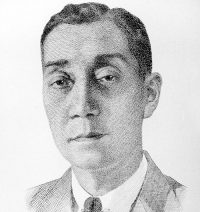Manila is talking about Tozyo’s promise of independence and, above the murmurs and whispers, one loud voice is heard! Benigno Aquino’s.
Aquino said that God has made us Orientals and therefore, if we believe in the infinite wisdom of God, we must follow His design and cooperate with Japan for the realization of our long cherished freedom. This is a racial argument, It is based on color. Color is only skin deep.
I am not influenced by emotions. I follow ideals. That is why I admire Rizal. He died for his ideals.
Explained to Mr. Noya the difficulties encountered by our provincial employees. Pointed out that their lives are in constant danger. Police protection in the provinces is a myth. Soldiers merely go around the plaza, pass by the principal streets and then go to the next town, show themselves in the plaza and pass over to the next. The bandits are aware of this. When the soldiers are gone, they loot and rob and sometimes they kill. It is not uncommon to see two or three corpses sprawled on the streets every day.
Because of the danger of robbery, I made the suggestion that cash payments (not?) be made. The Japanese superior agreed with me.
There is a recommendation to use processed hemp for sacks, if the Japanese Army will supply the raw product.
Must study how much we should pay for rice. Many factors are involved. Some of them: variety, state, condition and location. Offhand, we could pay ₱2.75 for Macan; ₱2.85 for Raminad and Inapostol; and ₱2.95 for Elon Elon.
Mr. Noya told me the Japanese intend to enforce controlled economy in the islands. “Free economy,” he explained, “is only good where there is abundance. But where there is a shortage or an impending one, the free palay of supply and demand must be controlled.”
“Equitable distribution,” he pointed out, “cannot be attained without control.”
He advanced the opinion that NARIC should control the entire rice industry. “One hundred percent,” he stated.
I pointed out that in the past, NARIC was only a price stabilizer. “Our main objective,” I explained, “was to peg the price of rice at a point within the reach of the average consumer, while giving producers a reasonable margin of profit.”
Noya believes conditions have changed and that the different circumstances at present demand, for the people’s sake, that NARIC control the entire rice industry from procurement to distribution.
“It is a difficult task,” he declared, “but it has got to be done.” Japan is doing it at present and with success.”
I let him talk. I have often wondered: Who gains more, the speaker or the listener?
He said further: “The Filipinos must be oriented with Japanese qualities. They need more of the spirit of sacrifice. I say this without intending to slight the Filipinos.”
“Japan,” he elucidated, “is sacrificing everything, exerting every thing in her power to win the war. We are short in materials. But the Japanese people are determined to make something out of nothing.” Men like Noya explain the spectacular rise of Japan within half a century to the rank of a first-rate world power. He is not a brilliant man. He is an ordinary, hard-working, disciplined individual. But multiply him by 80,000,000 and you have the picture of Japan, defying the world, firm in the belief that they can make something out of nothing.
Only people who think they are the chosen of the gods can profess such an absurdity.
